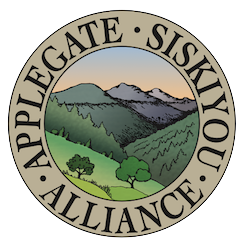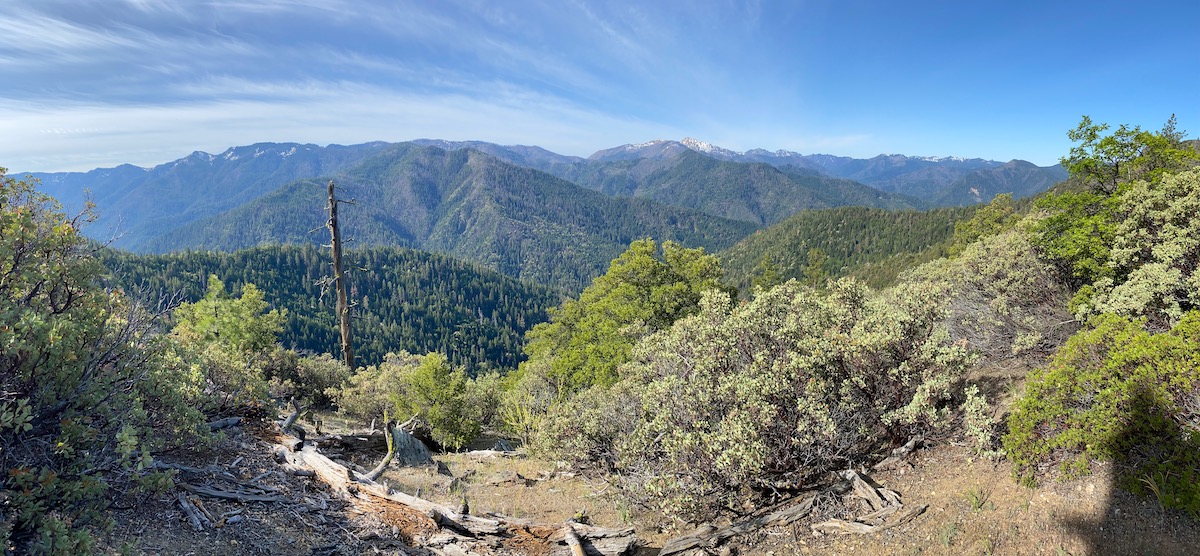
Imagine a large, old-growth logging project planned next to your land and there is no way for you to voice your concerns about it. Imagine a large mining proposal next to your favorite hiking trail and you don’t have the ability to provide public comment. Imagine a road construction project planned to go through an area teeming with wildlife and wildflowers you love. Imagine the places you are connected to, that you went to as a child or took you children to, being destroyed or degraded and you have no opportunity to share your perspective or express your concern with public land managers. All these imagined scenarios may soon become reality if we don’t act now!
Recently the Forest Service, under pressure from the Trump Administration and its industry allies, proposed sweeping changes to the public involvement and scientific review process. These changes would affect the vast majority of public land management projects throughout the nation, including the Rogue River-Siskiyou National Forest. The proposal would undermine public involvement and responsible, science-based management on National Forest lands. It would also fast track large logging, mining, off-road vehicle developments, road construction projects and other potentially damaging activities.
The proposed changes would allow federal land managers to circumvent the currently more democratic, scientifically rigorous, and inclusive public comment and environmental review process, and replace it with an internal Forest Service process where decisions are made behind closed doors and the public is only notified of projects after they have been approved. Public comment and public collaboration would be a thing of the past, and communities like the Applegate Valley would no longer have the opportunity to actively participate in land management planning.
If approved the Forest Service would essentially shut the public out of the process and eliminate the requirements to analyze, disclose, and fully consider the social and environmental impacts of proposed management activities. To achieve this goal, the agency is proposing significant changes to the National Environmental Policy Act (NEPA).

The National Environmental Policy Act (NEPA)
NEPA is the foundation of almost all public involvement on federal lands, providing the public with an opportunity to comment on federal land management projects and provide input on agency proposals. It is one of the most important pieces of environmental legislation ever passed, and it protects the public interest in public lands.
NEPA also requires federal land managers to subject proposed projects to a rigorous scientific review process, analyzing the impacts of proposed actions and identifying the natural values of the lands in question. NEPA requires the agencies to disclose these impacts to the public and to solicit the public’s input before approving a federal action with potentially significant impacts to the human or natural environment.
The Current Process
Currently the Forest Service must identify a “planning area” and general descriptions of land management activities proposed within that area. This initial proposal is called Scoping, which has a 30-day public comment period. The process allows land managers to get public and scientific feedback before fully developing a proposal. Scoping is also used to inform the environmental review process by identifying relevant issues for analysis and to develop a range of alternatives designed to address both social and environmental concerns. Scoping would be largely eliminated under the Forest Service’s proposed NEPA changes.
Following the scoping comment period, the vast majority of public land management projects require the publication of an Environmental Assessment (EA) or Environmental Impact Statement (EIS). These documents are used to analyze the resources at risk, the impacts of various land management alternatives to those resources, and to provide the public with detailed information about the activities proposed on public lands. Publication of an EA or EIS is followed by another 30-day comment period, and only after considering these comments can an agency issue a Decision Notice.
Once a decision is reached, the public can object to the project or portions of the project through a formal Objection process. This allows objectors t0 inform the agency of their concerns and advocate for changes to the approved action. If an adequate resolution is not reached, as a final option the public can litigate the project in court. NEPA provides checks and balances that promote transparency, collaboration and the resolution of relevant scientific or social concerns. These provisions would also be largely eliminated under the Forest Service’s proposed NEPA changes.
The Proposed Process
The Forest Service is proposing to virtually eliminate the public NEPA process (described above) for the vast majority of federal land management projects. These changes would only require the agency to notify the public after decisions have been made — no public comment or environmental review would be conducted and project approval would be followed by a mere 15-day Objection period.

Barring an objection or litigation, our backyards and backcountry in the Applegate Watershed could be auctioned off to the highest bidder and logged off, designated for off-road vehicle use, or otherwise affected by federal land management activities without public input and without analyzing for environmental impacts.
The Specifics
The proposed changes to NEPA would allow land managers to approve large and environmentally damaging projects without public comment or environmental review. More specifically the proposals include:
-The ability to authorize up to 4,200 acres (or 6.6 square miles of commercial logging and 7,300 acres of manual thinning in a single project without environmental review or public comment.
-The ability to authorized up to 5 miles of new road construction and 10 miles of road reconstruction without environmental review or public comment.
-The ability to convert currently illegal and damaging off-road vehicle trails into official trails or roads without environmental review or public comment.
-The ability to authorize these projects in Inventoried Roadless Areas, Late Successional Reserves, Riparian Reserves, and other important conservation areas without environmental review or public comment.
-The proposed rule changes do not limit the number of projects that could be approved in this manner.

Conclusions
Without public outcry, the Forest Service and the Trump Administration will continue to undermine the public engagement process, eliminate transparency and limit environmental review. Yet these are public lands and decision making should be accomplished in an open and transparent manner. Applegate Neighborhood Network is working to provide both the land and the people of the Applegate Watershed a voice in the federal land management process. We believe these beautiful public lands define our region and make us who we are as Applegaters. We also believe they should be managed for public benefit, which requires an open public process. Let’s keep the public in public lands.
Please comment on this project — your watershed, your public lands and our wildest landscapes need your support. Comments will be accepted until August 26, 2019.
To comment, please follow this link and click on “Comment Now.”

